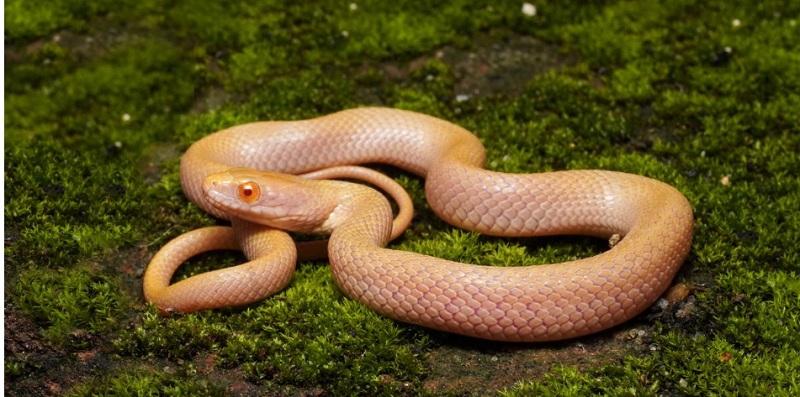Guwahati: A team from the Assam State Zoo and Botanical Garden has documented the first-ever record of albinism in the Checkered Keelback (Fowlea piscator), also called the Asian water snake, in Assam.
According to Zoo officials, the juvenile albino checkered keelback, measuring 290 mm in length, was found near the zoo in Guwahati.
The snake’s identity was verified through a thorough examination of its physical features and scalation, which matched published descriptions of the Fowlea piscator species.
The finding was formally reported and published by Rupankar Bhattacharjee, Ashwini Kumar, Debabrata Phukon, and Pranjal Mahananda of the Assam State Zoo, and Jayaditya Purkayastha of the Guwahati-based Help Earth, a biodiversity conservation group specialising in reptiles.
The study was published in the international journal ‘Reptiles & Amphibians’, following an assessment of the snake’s morphology and scalation by the team.
The researchers released the snake into a protected forest habitat within three days of its use as a specimen for study.
A non-venomous snake, the checkered keelback is a common species in the subfamily Natricinae of the family Colubridae. However, the albino checkered keelback is not so common.
Taking to Twitter, Assam Forest Minister Chandra Mohan Patowary said, “The snake was carefully studied and released into a protected habitat, marking an important milestone for Assam’s wildlife research and conservation efforts.”
The snake, a non-venomous watersnake commonly found across South Asia, exhibited complete hypopigmentation due to a lack of melanin in its eyes, skin, and scales. This condition resulted in red eyes and a pale yellowish body devoid of the species’ typical dark checkered pattern.
According to a study published in Reptiles & Amphibians, a peer-reviewed international open-access journal, albinism is an extremely rare genetic trait in wild snakes.
The researchers said hypopigmentation, resulting in albinism or leucism (partial loss of pigmentation), had earlier been reported in snakes from Gujarat, Maharashtra, Mizoram, and West Bengal in India and Dhanusha district in Nepal.
ALSO READ: Guwahati to host 1st All Assam All Martial Arts Games on December 7
“The new record further strengthens Assam’s reputation as a hub for wildlife research and conservation. It will also provide valuable insights for ongoing studies on rare genetic traits in Indian wildlife,” a zoo official said on Friday (November 14, 2025).















